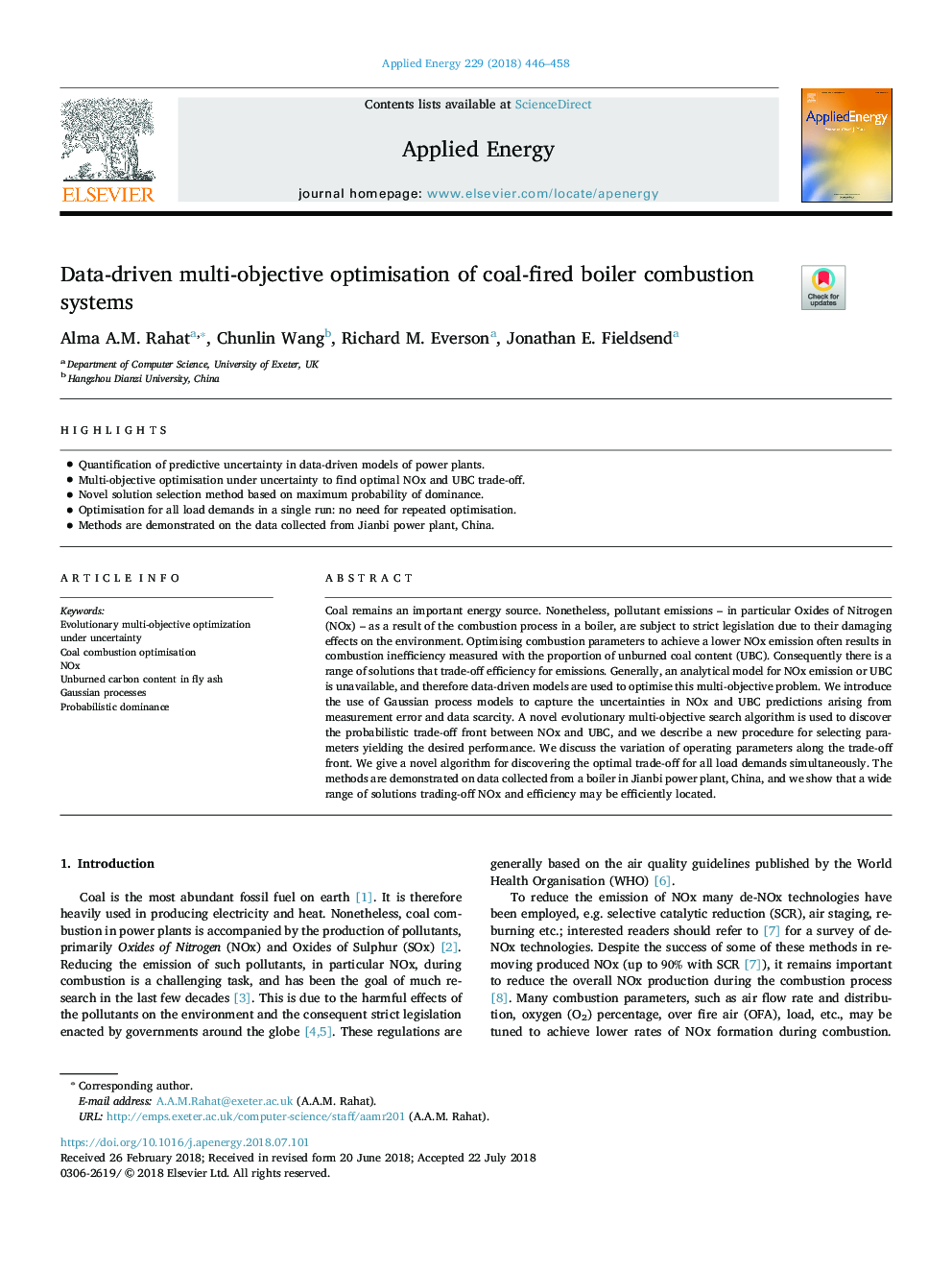| Article ID | Journal | Published Year | Pages | File Type |
|---|---|---|---|---|
| 6679656 | Applied Energy | 2018 | 13 Pages |
Abstract
Coal remains an important energy source. Nonetheless, pollutant emissions - in particular Oxides of Nitrogen (NOx) - as a result of the combustion process in a boiler, are subject to strict legislation due to their damaging effects on the environment. Optimising combustion parameters to achieve a lower NOx emission often results in combustion inefficiency measured with the proportion of unburned coal content (UBC). Consequently there is a range of solutions that trade-off efficiency for emissions. Generally, an analytical model for NOx emission or UBC is unavailable, and therefore data-driven models are used to optimise this multi-objective problem. We introduce the use of Gaussian process models to capture the uncertainties in NOx and UBC predictions arising from measurement error and data scarcity. A novel evolutionary multi-objective search algorithm is used to discover the probabilistic trade-off front between NOx and UBC, and we describe a new procedure for selecting parameters yielding the desired performance. We discuss the variation of operating parameters along the trade-off front. We give a novel algorithm for discovering the optimal trade-off for all load demands simultaneously. The methods are demonstrated on data collected from a boiler in Jianbi power plant, China, and we show that a wide range of solutions trading-off NOx and efficiency may be efficiently located.
Keywords
Related Topics
Physical Sciences and Engineering
Energy
Energy Engineering and Power Technology
Authors
Alma A.M. Rahat, Chunlin Wang, Richard M. Everson, Jonathan E. Fieldsend,
